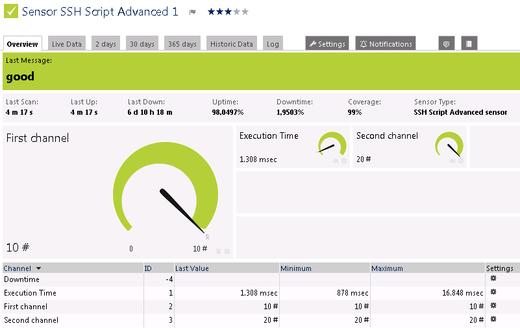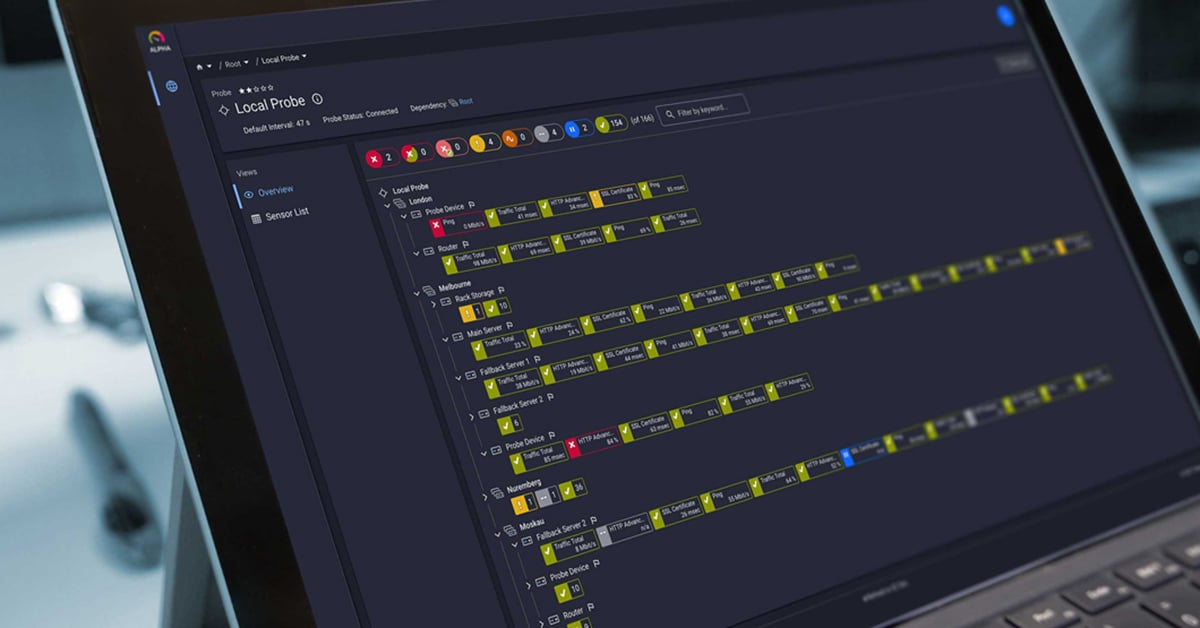A few months ago, we've featured the SSH Script sensor, which allows you to use your own scripts to customize your Linux monitoring.
In order to set up the SSH Script Advanced sensor, select a script from the /var/prtg/scriptsxml directory on the target Linux/Unix system. Please note that the script files stored in this folder must return valid XML in order for the sensor to show the expected values. If set up correctly, the sensor can show the following:
- Execution time, and
- Values returned by the script in multiple channels.
The areas of application for the SSH Script Advanced sensor are virtually infinite. You can use it to monitor, for example, multiple processes of your web shop and return the results of each check in a separate channel:
- The number of new orders in the last 24 hours,
- The number of registered users, and
- The number of new customer tickets.
This allows you to keep a detailed overview of your running processes—all within one sensor. If you set limits in PRTG for the monitored values, you can also set up notifications to get alerted if these values are exceeded and go into error state.
For more detailed information on the SSH Script Advanced sensor, please have a look at the PRTG manual. For deeper insights into your Linux systems also take a look at the Python Mini Probe, which enables you to run a mini probe directly on the Linux target system.
All Sensors of the Week
You have missed other articles of our "Sensors of the Week" blog series? Just take a look at the last 10 sensors:
- Windows Last Update sensor
- NetFlow V5 sensor
- SSH VMware ESX(i) Disk sensor
- SNMP Trap Receiver sensor
- SSH Meminfo sensor
- WMI Microsoft SQL Server sensor
- SSL Security Check sensor
- Packet Sniffer sensor
- Hyper-V Virtual Storage Device sensor
- SSH Disk Free sensor
Subscribe to our RSS feed to always stay up to date on new articles!
 Published by
Published by 













